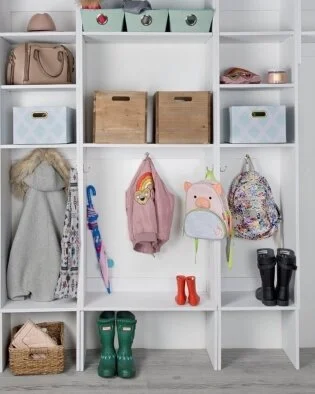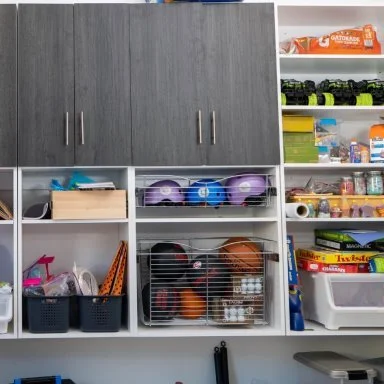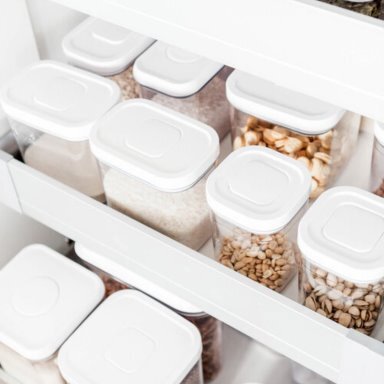Making It Modular
The Ultimate Home Organization Checklist For The Fall And Winter Season
By Marty Basher
With every autumn, thoughts turn to getting organized. After all, as each day gets shorter and the weather colder, you’ll probably find yourself spending more time indoors than out. Getting the house organized to manage the influx of “stuff” in the new winter season requires a little planning.
Come the first flakes of winter, you want to be sure to have everything in place, so now is a good time to start:
Make mudrooms and foyers functional
In spring and summer, there are a lot less accessories that come in and go out, with every trip out of the house. Perhaps a cap, or maybe a lightweight scarf? With fall, there’s a whole new set of items that come out: coats of various types for different weather (rain, cold, really cold!) and scarves, boots, hats and mittens, to name a few.
If you don’t want to face a pile of items that don’t have a designated home in the mudroom or entrance hall closet, you need to get ahead of the game:
For each person in the household, there should be a basket to keep sundries: hats, gloves, scarves and so on. Everyone knows where to put these smaller items and where to find them again.
Hanging hooks for jackets, caps, backpacks and more ensures that these things are up and off the floor.
Plan for wet umbrellas too, whether that’s an umbrella stand or hooks meant just for these.
As winter brings wet, mud and eventually snow, putting absorbing mats down for boots is a must.
Garage space is useful when the weather is frightful
A lot of people use their garage for storage of all sorts of things, from lawnmowers to tires on rims, from shovels and rakes to an extra freezer. It’s the perfect space to keep all the things that you just don’t have room for in the house, and that frankly don’t really belong inside anyway.
Of course, once the weather turns, it’s also nice to be able to bring the car(s) into the garage, rather than it getting covered in snow and ice. The key becomes where to put some of the items that currently reside in the space and the solution is right there: the walls.
Industrial hooks can help you to get a lot of stuff off the floor, leaving space for a vehicle (or two). Like what? Shovels, rakes, other lawn and garden tools, bikes, lawn chairs and more are up and out of the way. For smaller items, hanging shelves (wire or otherwise) keep your space organized, with everything and anything you might need in easy reach.
A change in season means a change in clothing
Create a space somewhere in your home—the basement is a good option—and make it the place you store clothes and footwear for the alternate season. After all, you probably won’t need your flip flops in February unless you live in Florida, so having a place to put all the out of season attire makes a whole lot of sense. Pick a weekend, as the weather cools, and start shifting everything the family wore in spring and summer into that space. Then what you have left is the fall and winter attire, shoes and accessories, which you can now organize and to which the three essential steps to decluttering can be applied: decide what needs to be kept, donated, or tossed out. Next spring, you’ll do the reverse and wonder why you hadn't been doing this all along!
Beyond clothes, there is sporting equipment (skis in winter, baseball bats in summer) that are seasonal and should also have designated storage places for their off season placement. As soccer winds down and hockey gears up, kids of all ages need to know where to put their equipment for easy retrieval.
Another area that gets messy is holiday decor. Get some plastic bins and mark them for the different decor (Christmas, Easter, Thanksgiving, Halloween… whatever you celebrate!) and make sure that everything is properly put away after each holiday. It will make it much easier to find all the bits and bobs, come the next holiday. This is also a good place to store seasonal wrapping. After all, who wants Santa paper for their June birthday?
Outdoor tools, toys and extras should be cleaned and stored
If you clean, sharpen and store everything nicely, it will be in good shape when you get it out next spring.
Hand tools will benefit from a wipe down and sharpening (pruners, for example) before being stored. It’s also important to put away plastic water hoses and watering cans. Don’t forget to shut off the valve to the outdoor faucet, after you’ve drained it, so there isn’t leftover water in the pipes that will freeze.
A lot of people swear by their winter BBQ habits but if that’s not your thing, clean your grill and the tools that go with it to avoid unwanted bugs or other critters discovering it. Ideally, you’ll be able to put a cover over it to keep it clean and tidy.
Garden furniture is hardy but it doesn’t do well with snow and ice so cover and protect or store your garden furniture and accessories, including umbrellas, hammocks and seating cushions.
Kids outdoor toys should be stored or protected, to prevent weather damage and cracking.
Emergency readiness should be a part of the plan
If you have an emergency readiness kit, the changeover from summer to fall / winter is the perfect time to check it and make sure everything is still good (batteries, etc…)
If you don’t have a kit, this is the year to start. After all, the climate is getting more and more interesting and depending on where you live, storms can be very powerful. Power outages during extreme weather can last for several days, so it’s worth being prepared.
Here’s a basic kit:
Flashlights
Extra batteries for same
Charging pack for phones
A hand crank radio
Canned and other non-perishable food; a can opener
Water
Paper towels and toilet paper
Candles aren’t advised, as they need to be monitored to avoid creating a hazardous situation, but there are plenty of lamps that have the same effect, without the risk.
Have a map of where your water shut off is, as well as the power for the furnace or other large appliances. If you have a flood, you’ll need to know where those are located for emergency services.
Kitchen and freezer reorganization
Heading into the cooler months, it’s a great idea to spend a little time doing some batch cooking of all those delicious stews and soups you’ll be wanting. It’s also, like with the emergency kit, a great time to check your freezer and pantry to make sure you have what you need and that nothing is taking up space that is past its due date. There’s no point freezing supplies if you can’t find them later!
Baskets in the freezer make it easier to store by type, so you know where to look for what you need.
Put a list on the outside of the freezer to show what you have and how much of it you have. That way, when you go shopping, you’ll know what you’re low on at a glance.
Your pantry needs a good going over, to make sure you’re well supplied in hot cocoa and tea, and perhaps less in pina colada mix! It’s the perfect time to make sure that everything isn’t past it’s prime and needs to be thrown out.
Once these actions become a habit, you will find the transition from the lazy days of summer to the cooler weather of fall to be easier and more pleasant for everyone in the family!
Marty Basher is the design and organization expert with Modular Closets . Marty regularly contributes on topics of DIY renovations, home design, organization, improvement and more, helping home owners get the most of the spaces in their home. Modular Closets are high-quality and easy-to-design closet systems made in the USA that you can order, assemble and install yourself, in no time at all. Using closet modules (closet pieces you can mix & match to design your own modular closet), homeowners everywhere are empowered to achieve a true custom look- for nearly 40% less than standard custom closets.









